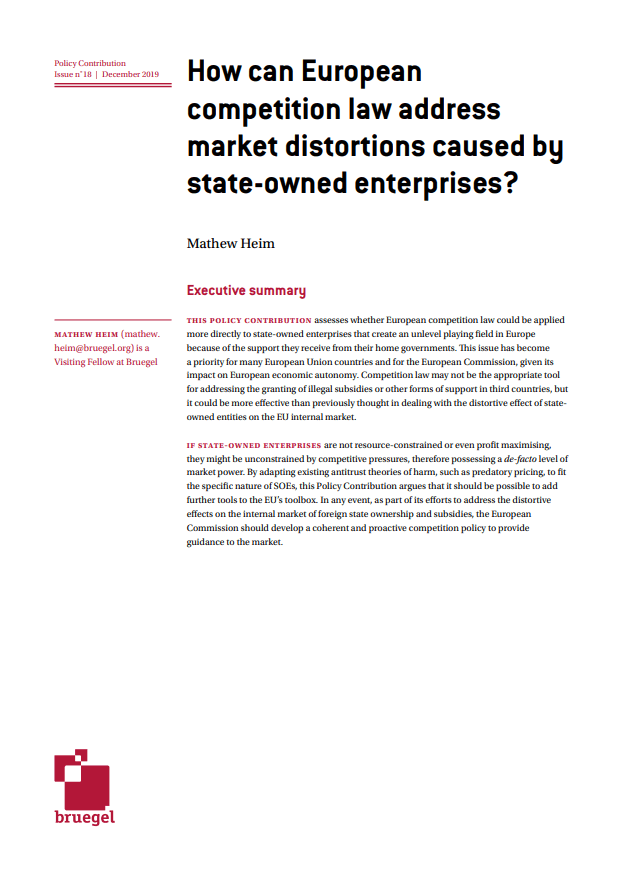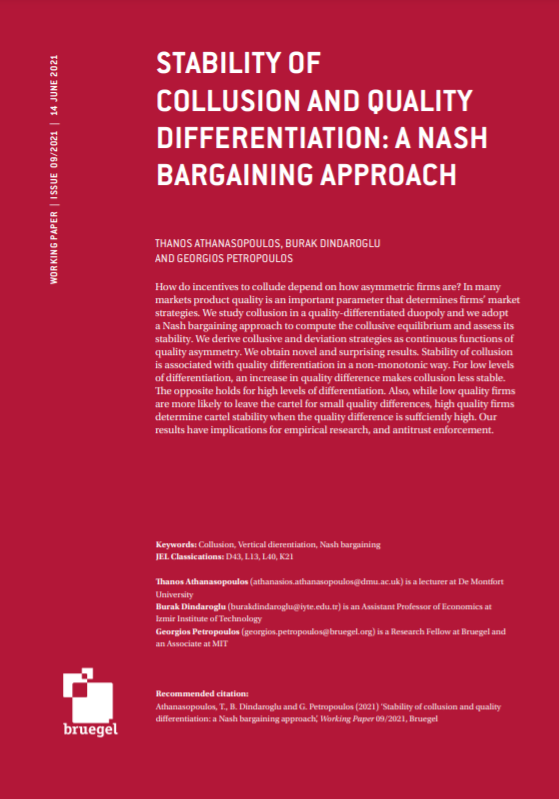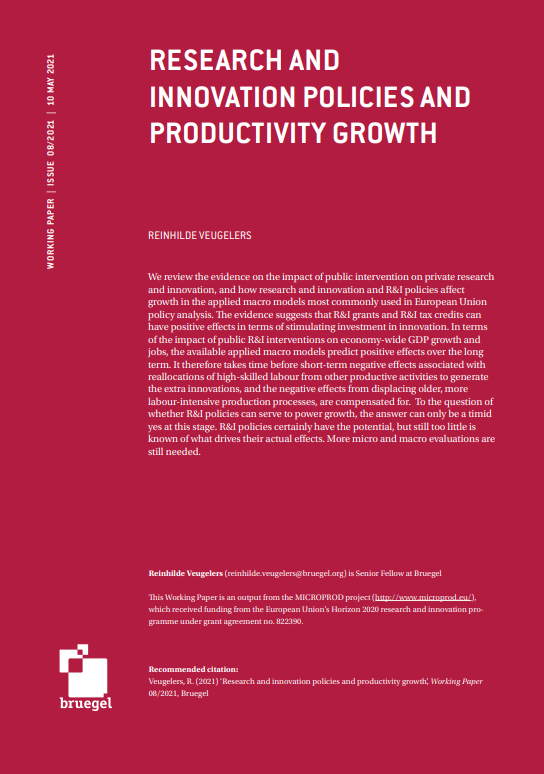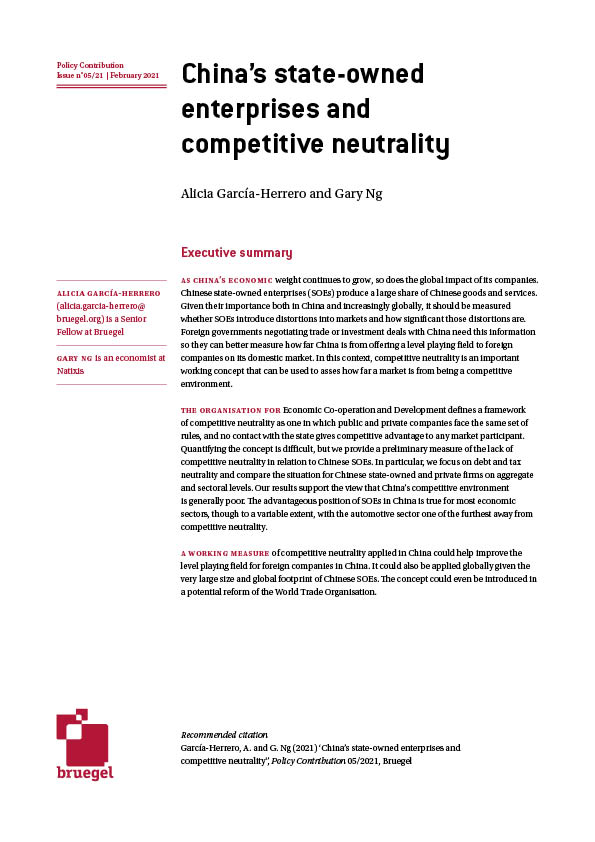Policy Contribution
Can EU competition law address market distortions caused by state-controlled enterprises?
The distortive effects that foreign state-owned or state-supported companies can have on European markets and on the European Union’s economic autonomy are starting to worry policymakers
This Policy Contribution considers whether European competition law could be applied more directly to state owned enterprises that create an unlevel playing field in Europe due to the support they receive from their home governments. This issue is now a priority for many Member States and the European Commission given the impact on European economic autonomy. Competition law may not be the appropriate tool for addressing the granting of illegal subsidies or other forms of support in third countries but it may be more effective than previously thought in dealing with the effect of state-owned entities that distort the internal market. If SOEs are not be resource-constrained or even profit maximising, such SOEs could be unconstrained by competitive pressures and therefore possess a de facto level of market power. By evolving existing exclusionary antitrust theories of harm, such as predatory pricing, to fit the specificities of SOEs, this Policy Contribution argues that it should be possible to add further tools to the EU’s toolbox. In any event, as part of its efforts to address the distortive effects of foreign state ownership and subsidies in the internal market, the Commission should develop a coherent and proactive competition policy to provide guidance to the market.











